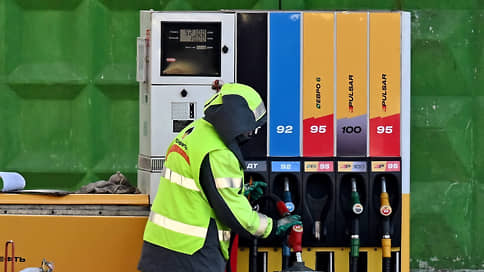Oil workers have little chance of getting about 100 billion rubles. damper for September
[ad_1]

Oil workers have little chance of getting about 100 billion rubles. fuel damper in September due to the continued rise in exchange prices for gasoline and diesel fuel. In order for the budget to pay the funds, companies need to achieve a price reduction of 20–25% in the remaining days of the month, which is unlikely. However, market participants can hope for an adjustment to the damper formula, which is currently being discussed by the government.
On September 13, the wholesale cost of summer diesel fuel at St. Petersburg International Trading Exchange exceeded 72 thousand rubles for the first time in trading history. per ton: fuel prices in the European part of Russia increased by 0.6%, to 72.15 thousand rubles. per ton. The cost of diesel fuel has been continuously rising for two weeks now, and AI-92 gasoline has been rising in price for even longer. Its value has never decreased since August 24 and the day before it increased by another 0.46%, to 68.58 thousand rubles. per ton. The cost of AI-95 gasoline also showed an increase – by 0.45%, to 75.91 thousand rubles.
This dynamic is increasingly alienating oil workers from the prospect of receiving a fuel damper by the end of September. As part of the damper, the budget compensates companies for part of the difference between export fuel prices and indicative domestic prices (56.9 thousand rubles per ton of AI-92 gasoline and 53.85 thousand rubles per ton of diesel fuel).
But if real domestic fuel prices exceed indicative prices by more than 10% for gasoline and 20% for diesel fuel, which already happened in September, the damper is reset.
In August, payments under it amounted to 185.9 billion rubles, and although from September the size of the damper should be halved by government decision, this means a loss of almost 100 billion rubles for companies.
It is no longer possible to influence prices to the required extent until the end of September, Kommersant’s interlocutors say. To make the payment of the damper for September possible, the current exchange price of gasoline must fall by more than 20%, for diesel fuel by more than 25%. “There is too much shortage of gasoline and diesel fuel on the domestic market, under which conditions it is impossible to reduce prices by 9-12 thousand rubles. per ton and then keep them at a lower level,” Kommersant’s sources say. In their opinion, quotes will continue to rise, thus compensating for losses from non-payment of subsidies.
Other Kommersant sources in the market believe that the formula for calculating the damper may change: the range of possible deviations from the indicative price or this price itself will increase.
We may also talk about canceling the coefficient that reduces payments from September (see “Kommersant” dated September 5).
According to Kommersant’s interlocutors, the government is actively holding meetings regarding the saturation of the domestic market with fuel, and by the end of the week final versions of regulatory documents on special fuel exporters (to combat “gray” exports), as well as a position agreed upon at the government level on damper adjustment.
Kommersant’s sources explain that the legislation allows the damper to be adjusted retroactively: for example, this was already done in 2021, when the new option became operational in May, although the State Duma adopted the corresponding changes to the Tax Code in June.
At the same time, it is impossible to retroactively change the mineral extraction tax on oil, due to the growth of which higher damper payments can be compensated.
But, Kommersant’s interlocutors believe, a decision may be made according to which the adjusted damper will work in September, and the increased mineral extraction tax – in November after all formal procedures have been completed.
Maxim Dyachenko, managing partner of Petroleum Trading, notes that the end of the rally in oil product prices is not yet in sight: “We are now entering the peak of repairs at refineries; fuel is not being released locally to independent participants.” Mr. Dyachenko adds that while independent gas stations are operating, raising retail prices faster than oil company gas stations do, and losing market share.
[ad_2]
Source link





